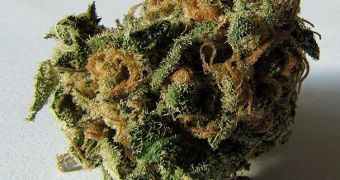In a study conducted on teenagers that were heavy alcohol and pot consumers, researchers determined that the brain suffers a host of modifications and ill side-effects following this type of abuse.
Regions of the brain involved in making decision, controlling judgments, and honing social skills are impaired in binge drinkers and people who smoke marijuana very often.
In other words, brain impairment occurs often in teens as a result of their substance abuse habits. The investigation was conducted by experts at the University of New Mexico School of Medicine.
The team here was led by expert Robert J. Thoma, who says that the results of this study go a long way towards supporting previous researches that have been published over the last 10 years.
One of the main reasons why such powerful correlation were discovered, scientists believe, could be that teens' brains are still developing when exposed to toxic chemicals in alcohol and to pot.
In the case of alcohol consumption, the frontal lobe of the brain is most severely affected. Adults may have it easier when dealing with such effects, given that their brains are already fully-formed.
Alcohol has also been demonstrated to impair two significant brain processes, such as those that contribute to sharpening attention, and to making good use of planning skills.
My Health News Daily reports that details of the new research were published in the January 2011 issue of the esteemed scientific journal Alcoholism: Clinical & Experimental Research.
A promising conclusion was that people who abstain from consuming additional amounts of alcohol and pot tend to experience improvements in the set of brain functions that had been impaired by the substances.
The effect lasted for as long as they steered clear of substances. The new experiments were carried out on 19 teens with a history of abuse, and 15 teens with no such history, who were used as controls.
“Recovery of function with cessation of drinking is a well-established finding in adults. And there is reason to believe the same would hold in youth, who tend to be resilient,” explains Thoma.
Scientists have thus far failed to account for the effects that take place as teens consume only moderate amounts of alcohol or pot, or if they do so occasionally.
The new investigation only analyzed the effects that excessive substance abuse has on heavy alcohol and marijuana users.

 14 DAY TRIAL //
14 DAY TRIAL //